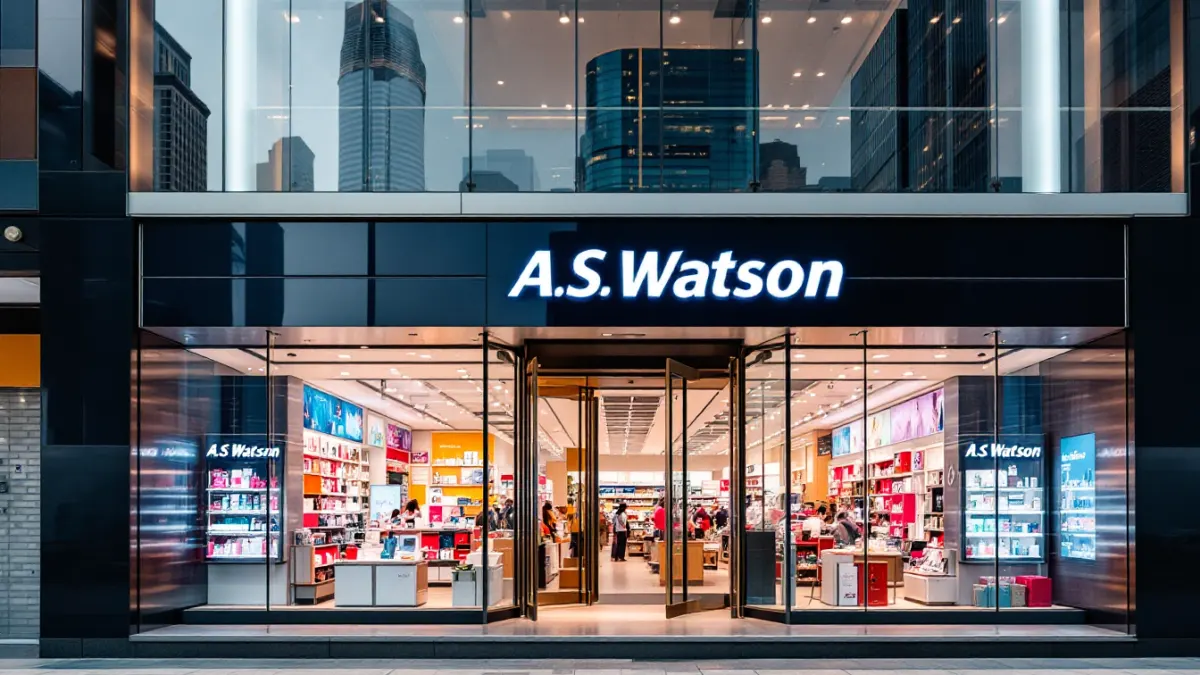Why Hong Kong’s CK Hutchison May Unlock Watson’s Global Retail Power

Hong Kong stands out as a hub where conglomerates leverage complex structures to unlock value. CK Hutchison Holdings Ltd. is reportedly considering listing its health and beauty unit, A.S. Watson Group, a bold move reshaping global retail finance.
This potential spin-off, announced in late 2025, transforms Asia’s largest health and beauty retailer into a public entity, separating it from its sprawling parent. But this isn’t just about raising capital—it’s about strategic system design that amplifies market leverage through stand-alone autonomy.
By isolating A.S. Watson in a public listing, CK Hutchison leverages distinct investment profiles and unlocks ecosystem advantages for both entities simultaneously. Asset-light, networked retail turns into a scalable engine independent of conglomerate constraints.
“Unlocking value requires unchaining assets from corporate complexity.”
Why Spinning Off Retail Is More Than Capital Recycling
Conventional wisdom treats listings as straightforward capital-raising maneuvers. Analysts expect pure financial engineering. They miss how CK Hutchison is repositioning its core constraint—from internal capital allocation to external market-driven scaling.
This is a textbook case of strategic partnership and business process autonomy. Unlike conglomerates that bury retail arms within cross-divisional budgets, this move deliberately separates A.S. Watson’s cash flow, governance, and growth trajectory.
How Hong Kong’s Conglomerate Model Enables Leverage
CK Hutchison has long operated as a diversified powerhouse, but its retail complex behaves differently from its infrastructure or telecom units. Global peers like Amazon integrate retail deeply with cloud and logistics. CK Hutchison opts instead to decouple retail risk and funding, optimizing for agility.
Competitors such as Alibaba and JD.com leverage tech-enabled platforms. A.S. Watson’s listing will instead leverage financial market structures in Hong Kong to expand regional dominance while preserving parent-level capital for other segments.
Who Gains, and Why It Matters Beyond Hong Kong
This is a win for investors seeking direct exposure to Asia’s largest health and beauty network, powered by thousands of stores across markets including China, Europe, and Southeast Asia. Separating A.S. Watson repositions governance and operational constraints, enabling faster market-driven scaling and partnership formation.
Other Asian conglomerates with embedded retail units must watch closely. This move rewrites strategic playbooks about how to create scalable, stand-alone retail systems from diversified giants.
Value isn’t unlocked by managing complexity better—it’s created by strategically breaking it apart.
Related Tools & Resources
When unlocking value through strategic system design and operational autonomy like CK Hutchison’s spin-off of A.S. Watson, effective customer relationship management becomes critical. Tools like Capsule CRM help retail and business teams maintain control over customer data and sales pipelines, enabling scalable growth and better governance as standalone entities. For businesses aiming to replicate this streamlined autonomy, Capsule CRM is a practical platform to improve sales management and customer tracking. Learn more about Capsule CRM →
Full Transparency: Some links in this article are affiliate partnerships. If you find value in the tools we recommend and decide to try them, we may earn a commission at no extra cost to you. We only recommend tools that align with the strategic thinking we share here. Think of it as supporting independent business analysis while discovering leverage in your own operations.
Frequently Asked Questions
What does spinning off a retail unit like A.S. Watson mean for a conglomerate?
Spinning off a retail unit like A.S. Watson involves creating a separate public company distinct from its conglomerate parent. This enables independent governance, cash flow separation, and market-driven scaling, unlocking value beyond traditional capital-raising.
How do conglomerates in Hong Kong leverage financial markets differently?
Hong Kong conglomerates like CK Hutchison decouple retail risk and funding through spin-offs, optimizing agility. They leverage Hong Kong's financial market structures to expand regional dominance while preserving capital for other segments.
What strategic advantages does a public listing provide to retail businesses?
A public listing provides retail businesses stand-alone autonomy, distinct investment profiles, and ecosystem advantages. This strategic system design amplifies market leverage by allowing faster scaling and partnership formation.
How is CK Hutchison's approach to retail different from global peers like Amazon?
CK Hutchison separates its retail operations through spin-offs, whereas Amazon integrates retail deeply with cloud and logistics. This decoupling allows CK Hutchison's retail unit to operate asset-light and networked, enhancing scalability and financial agility.
Why is separating retail units important beyond just raising capital?
Separating retail units enables focused governance, cash flow clarity, and growth trajectory independence. It shifts constraints from internal capital allocation to market-driven scaling, supporting strategic partnerships and autonomous business processes.
What markets does A.S. Watson serve after its potential spin-off?
A.S. Watson operates thousands of stores across Asia including China, Europe, and Southeast Asia, positioning it as Asia’s largest health and beauty retailer with regional market strength post spin-off.
How does strategic system design affect scalability in retail?
Strategic system design creates scalable, stand-alone retail systems by breaking corporate complexity apart. This enables businesses like A.S. Watson to leverage market autonomy and partner formation for accelerated growth.

